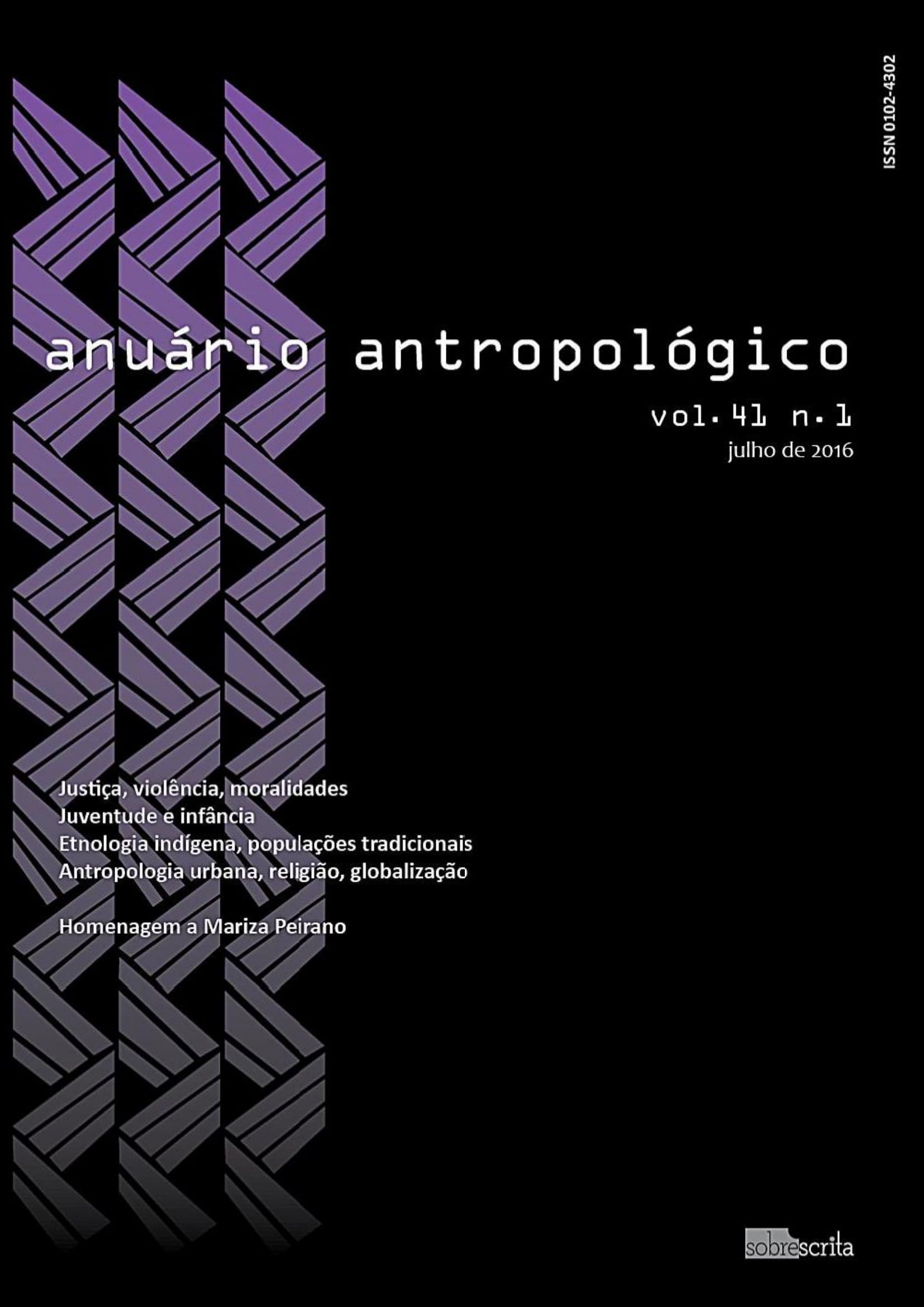Miragens do “novo Oriente”
China, Estados Unidos e sonhos que circulam
DOI :
https://doi.org/10.26512/anuarioantropologico.v41i1.2016/6487Mots-clés :
Sonho chinês, China, mobilidade estudantil, globalizaçãoRésumé
Este artigo tem como objetivo pensar o surgimento de algumas narrativas que se relacionam à noção de “sonho chinês”, tomada como refrão que permeia discursos na República Popular da China. Como ponto de articulação etnográfica, narram-se dois “atos”, compostos por um filme de grande sucesso comercial lançado na China em 2013 e algumas interações com a dona de uma pequena escola preparatória para exames dos Estados Unidos em Pequim. Ao relacionar narrativas, todas tendo a China e os Estados Unidos como paisagens de referência, analisam-se as possibilidades de elaboração de projetos que constituem sujeitos a partir de “miragens” que articulam percepções sobre a China e o mundo.
Téléchargements
Références
Arrighi, Giovanni. 2009. Adam Smith in Beijing: lineages of the twenty-first century. London: Verso.
CASTELLS, Manuel. 2000. A sociedade em rede. São Paulo: Paz e Terra.
FEI, Xiaotong. 1992. From the soil: foundations of Chinese society. Berkeley: University of California Press.
FIORAMONTI, Lorenzo. 2013. Gross Domestic Problem: The Politics Behind the World’s Most Powerful Number. London: ZED Books.
FONG, Vanessa L. 2004. Only hope: coming of age under China’s one-child policy. Stanford: Stanford University Press.
______. 2011. Paradise redefined: transnational Chinese students and the quest for flexible citizenship in a developed world. Stanford: Stanford University Press.
FOUCAULT, Michel. 2006. Vigiar e punir: nascimento da prisão. Petrópolis: Vozes.
GWYER, Jane. 2014. “The Gross Domestic Person?”. Anthropology Today, 30(2):16-20.
HARVEY, David. 2010. The enigma of capital and the crises of capitalism. Oxford: Oxford University Press.
HERZFELD, Michael. 2005. The practice of stereotypes: cultural intimacy. The social poetics of the Nation State. London: Routledge.
HUBBERT, Jennifer. 2014. Ambiguous states: Confucius Institutes and Chinese soft power in the U.S. classroom. Polar: Political and Legal Anthropology Review, 37(2):329-349.
KAI, Jin. 2014. The China dream vs. the American dream: the China dream is the dream of a nation; the American dream is the dream of an individual. The Diplomat, 20/09/2014. Disponível em: http://thediplomat.com/2014/09/the-china-dream-vs-theamerican-dream/. Acesso em: 30/09/2015.
KIPNISS. Andrew B. 2011. Governing Educational Desire: culture, politics and schooling in China. Chicago: The University of Chicago Press.
Kleinman, Arthur et al. 2011. Deep China: the moral life of the person. What anthropology and psychiatry tell us about China today. Berkeley: University of California Press.
Levenson, Joseph R. 1968. Confucian China and its modern fate: a trilogy. Berkeley e Los Angeles: University of California Press.
LIU, Lydia L. 2004. Clash of empires: the invention of China in modern world making. Cambridge: Harvard University Press.
Liu, Xin. 2002. The otherness of self: a genealogy of the self in contemporary China. Ann Arbor: University of Michigan Press.
______. 2009. The mirage of China. New York: Berghahn Books.
ONG, Aihwa. 1999. Flexible citizenship: the cultural logics of transnationanity. Durham: Duke University Press.
PATRIOTA DE MOURA, Cristina. 2013. “O ‘velho’ hukou na ‘nova’ China urbana: reflexões sobre uma dualidade contemporânea”. Anuário Antropológico, 38(2):225-245.
SMITH, Arthur Henderson. 1900. Chinese characteristics. London: Oliphant, Anderson and Ferrier.
Wang, Zheng. 2014. The Chinese dream: concept and context. Journal of Chinese Political Science, 19:1-1.
Weber, Max. 1951. The religion of China. New York: The Free Press.
XI PLEDGES “great renewal of Chinese nation”. Xinhua, 29/11/2012. Disponível em: http://news.xinhuanet.com/english/china/2012-11/29/c_132008231.htm. Acesso em: 28/07/2016.
Yan, Yunxian. 2009. The individualization of Chinese society. London School of Economics Monographs on Social Anthropology, 77. Oxford & New York: Berg.
Zhang, Li. 2001. Strangers in the city: reconfigurations of space, power, and social networks within China’s floating population. Stanford: Stanford University Press.
___________ 2010. In search of paradise: middle-class living in a Chinese Metropolis. Ithaca: Cornell University Press.
______. 2014. Bentuhua: culturing psychotherapy in postsocialist China. Culture, Medicine, and Psychiatry: an International Journal of Cross-Cultural Health Research, 38(2):283-305.
Zhang, Li & Ong, Aihwa (orgs.). 2008. Privatizing China: socialism from Afar. Ithaca and London: Cornell University Press.
Téléchargements
Publié-e
Comment citer
Numéro
Rubrique
Licence
© Anuário Antropológico 2016

Cette œuvre est sous licence Creative Commons Attribution - Pas d'Utilisation Commerciale - Pas de Modification 4.0 International.
https://creativecommons.org/licenses/by/4.0/legalcode.en
Creative Commons - Atribución- 4.0 Internacional - CC BY 4.0
https://creativecommons.org/licenses/by/4.0/legalcode.en



